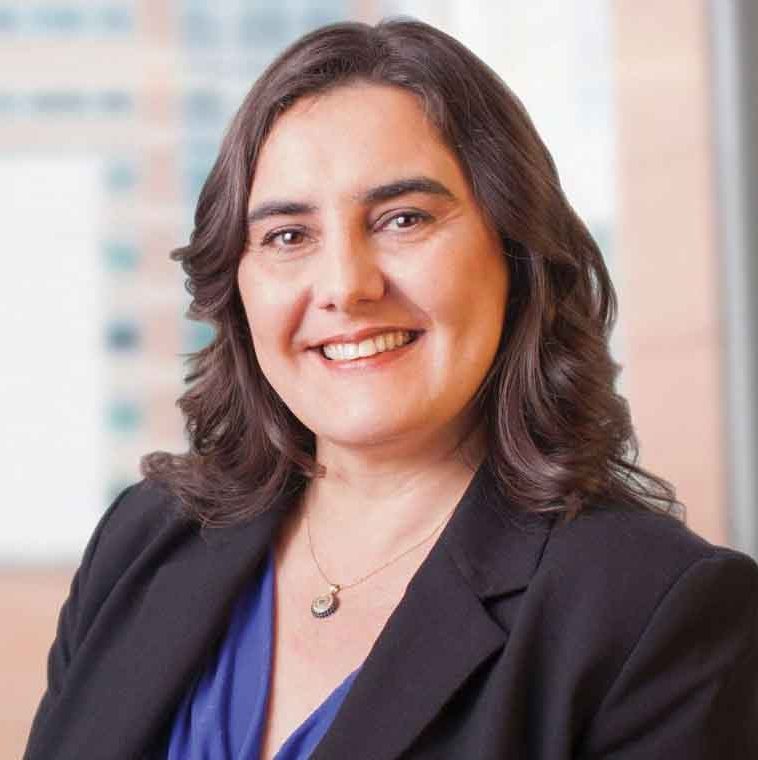On July 29, Dr. Yakut Gazi officially joined Duke University as its first Vice Provost for Learning Innovation and Digital Education. In this role, Gazi oversees both Duke Learning Innovation and Duke Continuing Studies, with responsibility for the development and execution of pedagogical innovation and digital education strategies, youth academic enrichment programs, and continuing education and lifelong learning offerings.
Previously, Gazi was the Associate Dean for Learning Systems at Georgia Tech Professional Education; her higher education experience spans over 29 years in four countries. In her answers to the following five questions, Gazi shares how her past has shaped her present and will influence Duke’s future.
This is a newly-created role at Duke. What attracted you to this position?
The commitment to the mission of lifelong education and to digital learning to provide accessible, affordable and flexible learning represents my life’s work. We have a unique opportunity to shape not only the future of our institutions, but also the future of higher education. Progressive and bold brands like Duke can expand access and opportunity in an equitable and inclusive manner to deliver affordable programs to global audiences. This is exactly where I want to be at this point in my career. This new Vice Provost role and office will help Duke become the educational partner of choice for the global lifetime learners of today and the future.
What are some of your goals for your first 90 days at Duke?
Duke University already has a great reputation, sizable online and continuing education activity, and a very talented and dedicated team. I have a vision and a plan to put Duke on the map as a powerhouse for lifetime education. My goal is to use the first 90 days to test my hypotheses while I meet and talk to as many stakeholders as possible at Duke. This kind of work requires intentional relationship building and intense listening to faculty, learners, leaders of the institution and the community, as well as colleagues in the field. Creating consensus behind a vision and plan is critical for my first 90 days.
Which issues in education are you most passionate about?
I am convinced that challenges with the future of work and education are really issues of scale and inclusion, especially in a technology-driven post-COVID world. To achieve impact at scale, we need to relentlessly pursue accessibility and affordability, while maintaining a focus on quality. I am an immigrant and I live in a multicultural, multilingual, multifaith and multigenerational household. Diversity and inclusion is very close to my heart. Creation of accessible, affordable, high-quality educational opportunities that enable participation of diverse learners for a more just world is what fuels me and gives me excitement.
How did you become interested in higher education and online learning?
Sometimes simple, seemingly trivial decisions in life become major forks in the road. As a senior in college, I took an undergraduate research course – primarily because it fit my schedule and I liked that professor. This course created an immense passion for research which carried me to a master’s program, a job as a research assistant, and then pursuing a doctoral degree. One day, walking through the computer lab, helping a class that I was TAing, I realized that computers were the future of education. Back then I was in the field of science education. Online was just starting, we were still using dial-up connections. With this epiphany, I decided to shift my graduate studies to educational technology and first went to the University of Barcelona as a visiting scholar and worked on a European Union project to develop online modules, and then moved to Texas to start a new doctoral program in educational technology. As my career progressed, I had an opportunity to work at the intersection of online and professional/lifelong education and now cannot think of them separate from each other. We will live longer lives (50% of children who are born today are expected to live to be 100) and with technology shaping our careers, we will need to continually learn new skills and update our knowledge. We can no longer be “done with school.” Obviously, we cannot pause our lives and go back to school, so online education, coupled with meaningful, intelligently designed in-person interactions will be how we swirl in and out of school.
What are some of your proudest work-related achievements?
I have been part of bold initiatives that allowed me to work as part of talented, dedicated teams. I was among the first waves of people who helped establish Texas A&M’s branch campus in Qatar. Being a part of that adventure back then and seeing that endeavor celebrating its 20th year is very powerful. About a decade ago, I was a part of a team that built a new regional university in Texas (Texas A&M University-Central Texas), grew online programs and acquired initial accreditation. The satisfaction that we felt as part of this incredible moment in the history of that university and the pride we felt as a result of this accomplishment will always stay with me for the rest of my career. Having said that, I am definitely proud to be here at Duke.

